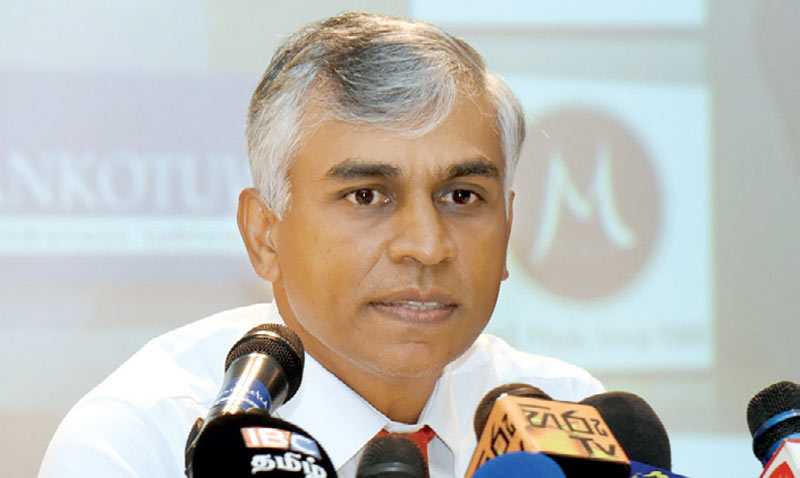Monday Mar 02, 2026
Monday Mar 02, 2026
Thursday, 7 January 2021 00:42 - - {{hitsCtrl.values.hits}}

Sri Lanka Ceramics and Glass Council Past President Mahendra Jayasekera
by Darshana Abayasingha
The Sri Lanka Ceramic Council this week called on the government to “correct the book value” of the Department of Customs for ceramic ware to $ 100, in order to encourage existing manufacturers and promote new entrepreneurs.
Addressing a media briefing in Colombo on Tuesday, the Council observed the current rate of $ 35 was unrealistically low, and the flood of cheap imports was undermining the local industry.
Speaking to the Daily FT, Sri Lanka Ceramic Council President Mahendra Jayasekera, remarked that whilst domestic production was inadequate to cater to local demand, it was imperative to support the local industry and create a level playing field. He added that representations have been made to government in this respect, adding if the situation is maintained over a period of two years, Sri Lanka can become self-sufficient in the ceramic tiles and sanitary ware industry.
At present the stated book value for imported items in the valuation department of the Sri Lanka Customs is low. Accordingly, the value of a complete set of ceramic sanitary ware imports weighing over 65kgs valuation stands Rs. 6,350. This is an unrealistic amount, the Council states, as a complete set of ceramic sanitary ware cannot be manufactured for such a low cost. An amendment will enable local manufacturers to compete with imports and prevent inferior products being dumped into Sri Lanka, plus, stop the huge outflow of foreign exchange, they added.
Jayasekera told the Daily FT that imports are an important segment of the market and that these livelihoods need to be protected. However, he noted that it was also imperative to enable a balanced marketplace for manufacturers, traders and consumers to benefit. Several proposals in this regard have been made to authorities including a proposal to support Sri Lankan exports, he added.
Jayasekera remarked that whilst imports need to be controlled to support the balance of payments situation, a certain amount of relaxation would not hurt the local industry and would in fact add value to the market, as exporters too could utilise proceeds to bring down products.
The Sri Lanka Ceramic Council President added that the amendment will also help increase the number of Entrepreneurs in Sri Lanka – which stands at 1.6% at present – to around 10% as more persons could get into manufacturing and reduce unemployment. The ceramic industry of Sri Lanka has 20,000 employees and with the current government policy to boost local production, manufacturers are ready to invest close to Rs. 20 billion to expand production and set up new factories, he added, estimating that it will create around 20,000 new jobs.
Pic by Ruwan Walpola